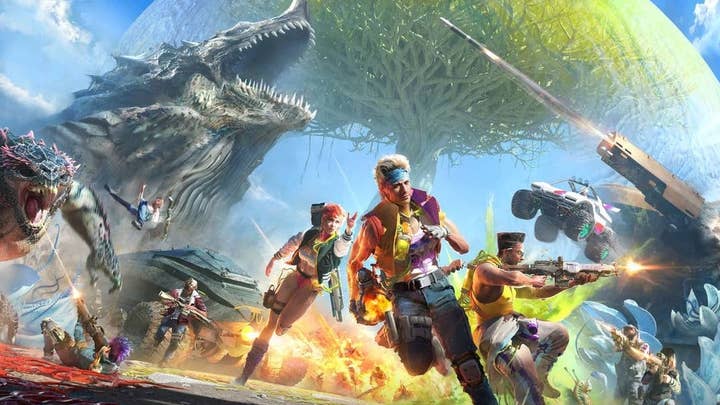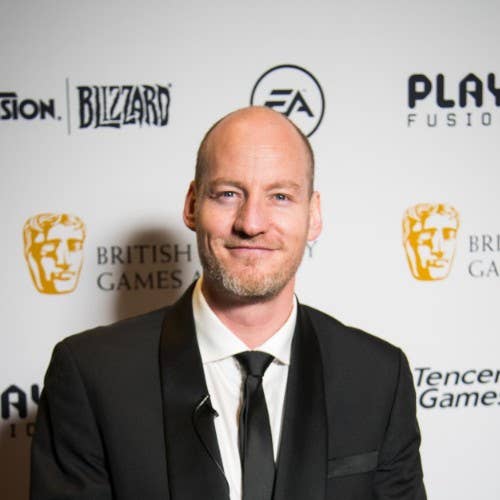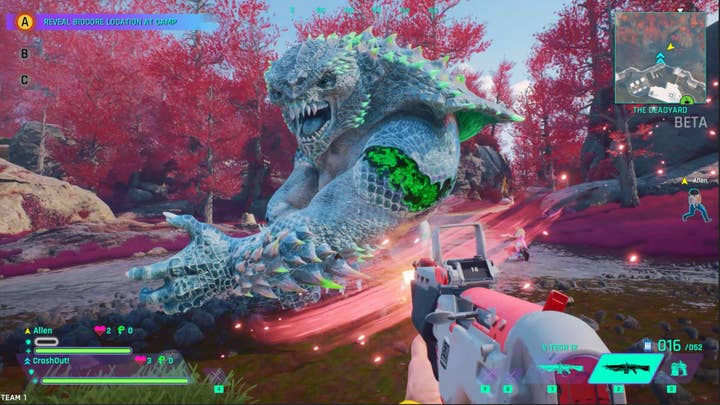Playfusion's Ascendant makes a comeback following the downfall of Lightseekers

Earlier this year, UK game developer Playfusion introduced Ascendant Infinity, a new online multiplayer game designed to offer dynamic, ever-changing matches.
This title does more than just alter the available gear or the placement of crucial items; it also initiates random events like air strikes or monster eruptions that may challenge players' plans.
Mark Gerhard, the founder of Playfusion, mentioned to GamesIndustry.biz that after a lengthy period in stealth development, the team felt relieved by the positive reception of their initial reveal: "People desire innovative and unique content. There's a sense of fatigue with sequels and new battle royale games. It's encouraging to see that our risk-taking has been appreciated, with our 'adaption shooter' and event-driven gameplay mechanic."
According to Gerhard, gamers, influencers, and media outlets were enthusiastic about the game. However, the game's name faced some criticism, which was easily addressed by shortening it to Ascendant during this month's Future Games Show. The development team's current focus is on fulfilling the game's early promise.
"We're incredibly excited – we believe we have something remarkable," Gerhard said. "But the game is only the beginning. We've been working on a comprehensive transmedia vision for nine years, but its success hinges on the game's performance."

"If this works, this will be an overnight success that only took ten years to make" Mark Gerhard
Details of this expansive vision aren't fully disclosed yet, but Gerhard did share that a pilot for a TV series has been created by the same team behind Arcane, the animated Netflix series based on League of Legends. Playfusion also holds patents for a technology referred to by Gerhard as "Shazam for video," which aims to integrate the game with the TV show and even feature players' characters in the show.
It may seem ambitious for an independant studio, but it's worth remembering that Playfusion's first game, Lightseekers, was also built on a transmedia foundation. Apart from the digital collectible card game, Lightseekers included an array of toys-to-life products, with envisioned extensions into comics, TV series, and board games. Unfortunately, the sudden bankruptcy of Toys R Us mere weeks post-launch halted those plans.
"PlayFusion's creation in 2015 was rooted in the ambition to build a transmedia universe," Gerhard shared. "Despite the demise of Toys R Us, our vision for Lightseekers came with considerable sadness as they had all our products and cards. The game itself was free to support this larger ecosystem."
The transition from a collectible card game to a multiplayer shooter appears drastic, but Gerhard explains that the team has relevant expertise. Many team members hail from Jagex, the developers behind Runescape, where Gerhard served as CEO. Additionally, talent was sourced from Eurocom after its closure in 2012, who brought with them the experience of working on the last three James Bond games.
"The team's passion and skills are perfectly aligned to create Ascendant," he said. "Lightseekers served as a stepping stone for this. After a period of self-recapitalization, we decided to pursue our dream. Ascendant embodies this ambition."
Building a new game IP with a transmedia dimension isn't new, but very few have succeeded. One reason is that every transmedia product must excel in its field, and the cost of entry can be high if fans are required to purchase a variety of comics and books in addition to the game.
"It's undoubtedly challenging," Gerhard noted. "If it was easy, it would have been done by now. I believe this is the future of our art form; it's just waiting for a breakthrough example that I'm hopeful will be us."
Gerhard asserted that the lack of a world-class transmedia example has been a barrier, but he likened a potential success to the transformation Dolby brought to music – moving from mono to stereo. He acknowledged, however, that managing multiple entertainment forms introduces significant risks.
He echoed Arnold Schwarzenegger's sentiment from a recent interview: "Losers stay down, but winners always get up, dust themselves off, and keep going." For Playfusion, this mentality drives their vision and response to previous setbacks.
Currently, the main priority is Ascendant. Gerhard revealed that the development approach differed significantly from past projects.
"We focused on finding the fun and nailing down the systems and mechanics before worrying about the art," he said. "We believed that creating compelling gameplay was more important than visuals initially and aimed to build something enduring."

Gerhard humorously mentioned that incorporating the art initially led to crashes and performance issues, prompting the team to resolve these bugs ahead of the forthcoming beta phase.
"While it's seamless on top-tier hardware, our goal is to accommodate a broad range of players, especially those with low-to-mid tier setups, all without sacrificing our creative vision."
Addressing market competition, Gerhard acknowledges that Ascendant's unique 'adaption shooter' concept enters a fiercely competitive arena: live service online multiplayer shooters. However, the studio's chief marketing officer, Murray Pannell, whose resume includes stints at PlayStation, Ubisoft, EA, and 2K Games, is optimistic.
"One of our biggest challenges is the awareness and the cold start scenario"Murray Pannell
"Compared to other projects I've worked on within the same timeframe, this game is significantly more advanced," Pannell states. "Creating awareness and overcoming the initial hurdle in a saturated market are substantial challenges. How do we stand out in an environment crowded with well-established titles that have dedicated player bases?
"Success for us doesn't mean rivaling Fortnite or Call of Duty out of the gate. Achieving that would be fantastic, but our current ambition is more modest. We aim to attract a dedicated audience who will appreciate and engage deeply with our game, and from there, we'll expand."
Gerhard adds: "Gamers might be surprised to learn that this game is developed by an independent studio. It has the look and feel of a major AAA title. Our goal is to make a mark in the industry and challenge norms. I believe we are close to achieving that. Although entering a crowded market is tough, I am confident in our potential to make an impact."